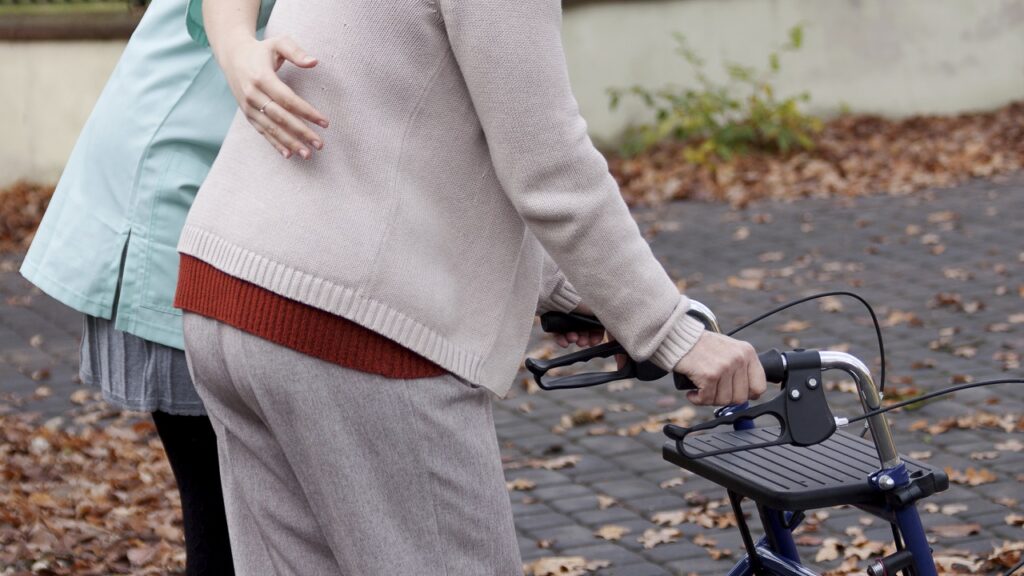Feeling stretched thin? It might be time to consider bringing in help, according to Mattan Schuchman, M.D. , a geriatric specialist who provides in-home care to older patients through the Johns Hopkins Home-Based Medicine program.

Help With Daily Living For Older Adults
Caregiving is stressful in all sorts of ways. It can be financially demanding, especially if it interferes with your ability to work outside the home. It can suck up a lot of your time. And it can be emotionally and physically exhausting, too
Of course you want what’s best for your aging spouse or parent. But feeling overwhelmed isn’t good for anyone. If you neglect your own well-being, the well-being of your loved one is likely to suffer, too.
“When you feel that you cannot adequately meet the needs of your loved one, I recommend hiring somebody to come in and help with activities of daily living,” Schuchman says.
Getting Past Caregiver Guilt
Unfortunately, caregivers often feel guilty about asking for help. They might feel like they’re letting their loved one down. But it’s likely that the care recipient also feels guilty about being a burden, Schuchman notes. “Often these feelings are mirrored on both sides.”
The best way to get past those feelings: Talk about them. “Having an open conversation with your loved one is really important,” he says.
It also helps to shift your thinking. Don’t think of asking for help as a sign of failure. Instead, think of it as focusing on what’s important. “If you hire someone to do the mundane day-to-day tasks, such as getting groceries or doing work around the house, you can focus instead on spending quality time with your loved one and making good memories together.”
What Kind of In-Home Help Is Available?
Caregiving help comes in many varieties. Certified nursing assistants can help with medical needs such as giving injections and other medications, caring for wounds or monitoring blood sugar. Home care aides or helpers can assist with nonmedical needs, such as preparing meals, light housekeeping and assistance with bathing and personal hygiene.
If home health aides are not in your budget, though, there might be other ways to seek help. Does your local grocery store offer delivery services? Can you pay a teen neighbor to mow the lawn or mop the floors? Consider what tasks you might be able to outsource, so you can spend quality time with your loved one instead.
It’s also worth exploring the resources available in your region. Some communities have meal delivery services, specialized public transportation options for seniors or faith-based volunteer groups that can assist older adults. Ask your doctor or hospital social worker about resources in your region.
Asking for help can be hard. But sometimes, it’s the best thing you can do for the people you love.
We can help you find a qualified, professional and compassionate caregiver. Fill in this quick form and we’ll get right back to you: https://www.pillarcare.com/elderly-care or call at:
*This article, adapted for our use, is courtesy of Johns Hopkins Home-Based Medicine at John Hopkins University in Baltimore, Maryland. https://www.hopkinsmedicine.org/health

